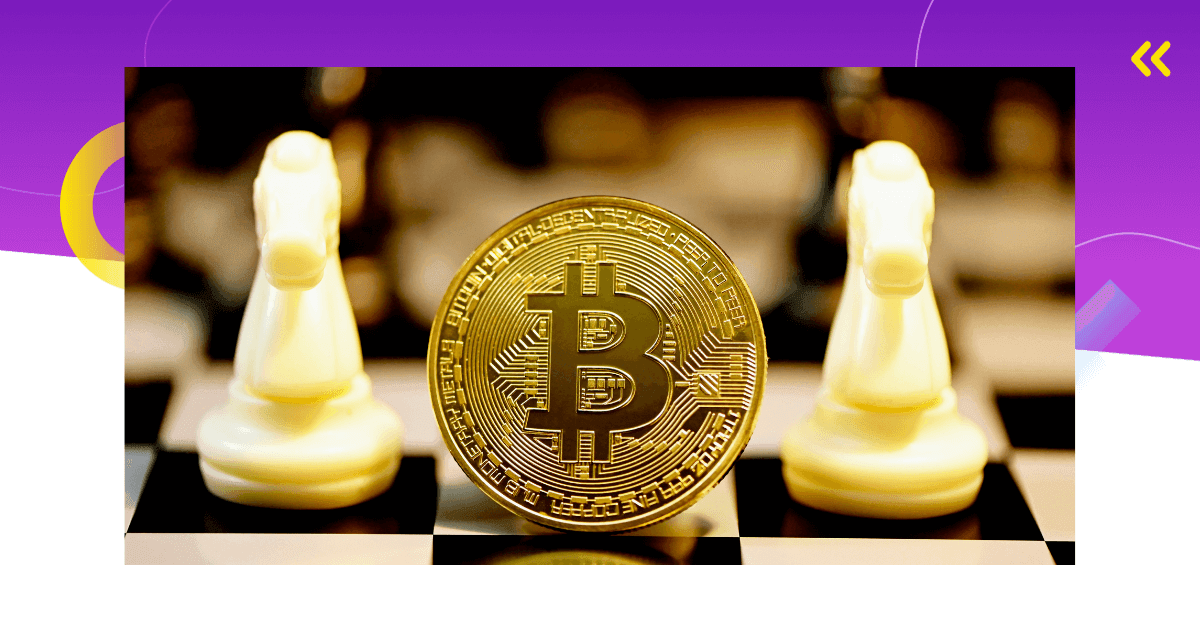In this article, I’ll teach you how to write a whitepaper for a blockchain game project, as this is the best way to introduce it to investors and the public.
But first, here’s what a whitepaper actually is.
What Is a Whitepaper?
A whitepaper or white paper is a document that provides all the necessary information about a project. It is used to introduce and explain the project in-depth and is used in many different industries, including blockchain and crypto.
Whitepapers go back 100 years ago and the reason it’s called a white paper is thanks to the British government, who designated the color white to documents that can be accessed by the public.
Why Do You Need to Write a Whitepaper for a Blockchain Game?
Maybe you’re wondering, do you really need to write a whitepaper for a blockchain game?
I would argue – yes.
People who are looking to invest in a blockchain project read whitepapers to make better decisions. It helps them figure out which projects show promise and are worth investing time and money in, as well as identify potential scams. For example, badly written whitepapers with unrealistic roadmaps are one of the first signs of a crypto scam.
Thus, writing a whitepaper for a blockchain game is the perfect way to present your project not only to potential investors, but also players, partners, and the media. It is considered to be one of the most powerful marketing tools, if done right, of course.

Whitepaper for a Blockchain Game: Outline/Template
To help you get started with writing a whitepaper for a blockchain game or similar project, I’ve put together a simple template.
Here’s what you need to include in your white paper for a play-to-earn game.
Cover
This is optional and depends on the format of a whitepaper, but some teams include a cover at the beginning, especially if the document is a pdf. A simple cover with game imagery and a title is fine. However, you also might want to include the year or current edition of the whitepaper, as these documents are often updated.
Introduction
In the introduction, include a short overview of the blockchain market and how your game fits in it.
Keep it short, but make sure it grabs the readers’ attention.
Additionally, this is also a good place to include any disclaimers you might have.
Table of Contents
Next up is the table of contents – I recommend that you always include it because it gives people an idea of what to expect. Furthermore, it makes it easier to find specific topics and parts of the document.
Game Introduction/Overview
Now is the time to introduce your blockchain game and explain what it’s about, but stick with the basics – you’re going to explain the details later on in the document.
You might also want to include the game’s lore in this part.
Technology
This section should include more technical information about the blockchain technology and network you’re using and why.

Gameplay
While the earning aspect is the main focus of many blockchain games, the gameplay is still very important as it’s the basis for the play-to-earn model.
Depending on the complexity of the gameplay, you might need to include various subsections that explain different elements and features.
For example, the image above shows the gameplay section of Splinterlands’ whitepaper. It is divided into subsections that clarify all aspects of gameplay.

NFTs
Most blockchain games tokenize various in-game items and avatars. Explain what’s the role of NFTs in your game, rarity types, and other characteristics.
In the example above, you can check out the NFT section in Alien World’s whitepaper. It goes through different types of NFTs this game offers.

Token (Tokenomics)
Tokens are a big part of blockchain gaming, which is why you need a designated section for this topic.
Introduce your game’s native token or tokens, and explain what type of token it is (e.g., utility token, governance token) and its use cases (e.g., rewards, staking, voting).
Furthermore, you should include info about token supply, distribution, allocation, staking, etc.
Rewards
For blockchain games that rely on the play-to-earn model, it’s essential to explain how rewards work in your game.
For example, players can earn the game’s token by competing in tournaments and completing missions.
Land (if applicable)
Some blockchain games have the option of land ownership in the form of NFTs. If that’s the case with your game, make sure to clarify the benefits of becoming a land owner and how that ties into gameplay.
DAO (if applicable)
Oftentimes, play-to-earn games are organized as a decentralized autonomous organization or DAO. It is an entity in which token holders participate in decision-making and vote on the game’s development.
If that’s the case with your game, you need to explain how governance works, which token works as a governance token, and how can token holders vote and influence the game’s future.

Marketplace (if applicable)
Some play-to-earn games, like Axie Infinity and Decentraland for example, have native NFT marketplaces where players can buy, sell, and trade NFTs.
If you have a marketplace, illustrate how to use it and include which information is required to list an item.

Community
One of the main signs of a promising blockchain project is the community around it. This is what a lot of investors look for. Thus, make sure to include some of your community-building efforts.

Team
For many investors, the team behind a blockchain game project is what matters the most. Give a short introduction to every team member and make sure to highlight any relevant experience in the field.
This is also where you can provide background info on your company and its history.

Partnerships
When you partner with trusted companies, that gives your blockchain project credibility. Thus, make sure to highlight the companies that believe in your vision – it’ll inspire others to do the same.

Roadmap
Last, but not least, every good whitepaper for a blockchain game should include a roadmap – a 12-to-24-month project development plan. A roadmap is essential because it shows the potential of your project.
This is where you list all the goals and milestones you plan to achieve and when. You should also include completed milestones, as this is an important advantage investors will take note of.
Tips for Writing a Whitepaper for a Blockchain Game
Finally, here are some essential tips for writing a whitepaper for a blockchain game that will help you convince people to invest or take part in your project.
Include All the Necessary Information
Whitepapers for blockchain projects should be fairly extensive and contain all information a potential investor, partner, or player would need to understand it.
I’ve come across whitepapers for some games that lack important information, which is frustrating when you’re trying to figure out how the game works.
Thus, use the outline provided to make sure your whitepaper covers all essential details.

Make It Understandable for Beginners
This is an important one.
The blockchain gaming market is still very new. Many people are beginners and don’t fully understand technical details or even basic blockchain gaming concepts like NFTs, DAOs, or staking. Moreover, many people, even investors, are not in on the insider lingo used in blockchain communities.
Thus, make the content easily understandable even for people who have very little knowledge about blockchain gaming. Stick to layman’s terms. If you’re using various abbreviations or advanced terms, make sure to explain them.
The goal is to introduce your project to the masses, not just target a small group of insiders.
Improve Readability with Formatting
Whitepapers usually contain a lot of information and can get quite complex. If the document is not properly formatted, it can easily become illegible.
Here’s how to avoid that:
- Organize everything with headings and subheadings
- Use white space strategically
- Have enough padding and spacing between elements
- Include graphs and images where appropriate
Final Thoughts on How to Write a Whitepaper for a Blockchain Game
If you need any help with writing a white paper for a blockchain game, feel free to reach out or comment below!







Comments